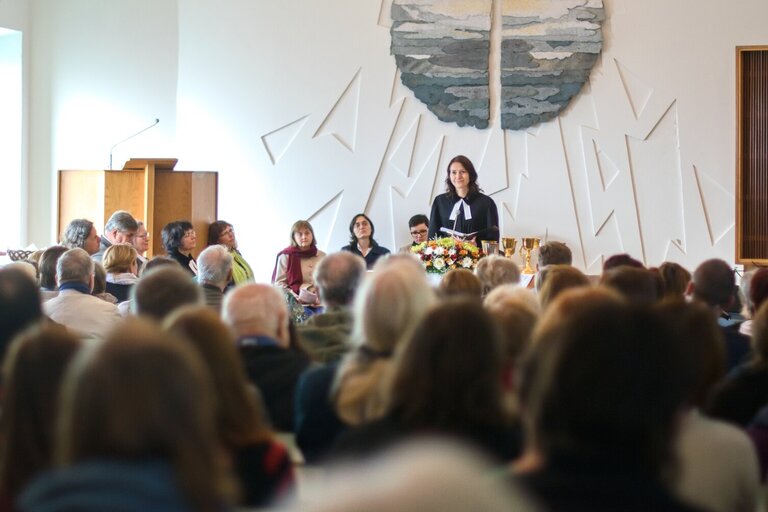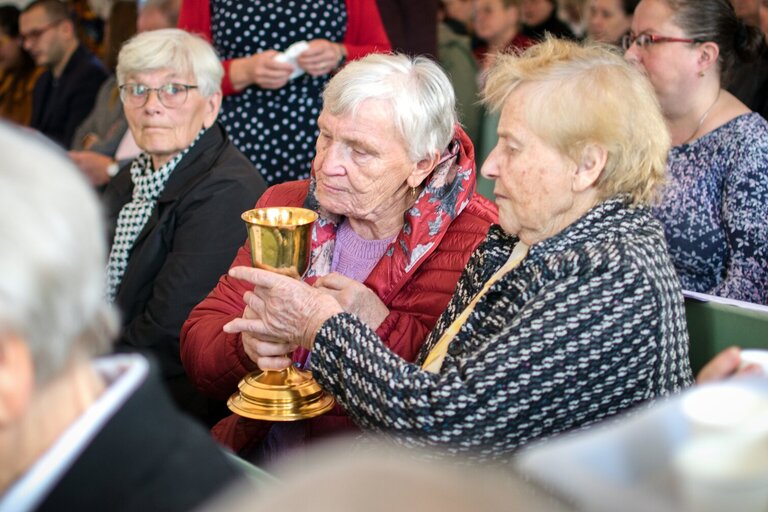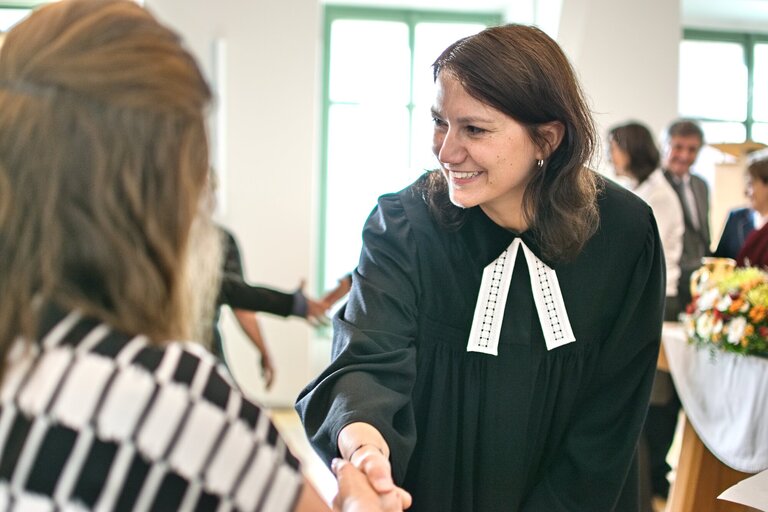Women preachers – over 70 years in the Evangelical Church of Czech Brethren
In late 1953, the following message was announced publicly, at least in the churches of the ECCB: „The Synod has resolved that the possibility of being ordained within the Evangelical Church of Czech Brethren be granted to all men and women who are properly prepared.“
This resolution of the Synod from 30 October 1953 was an expression of courageous faith and hope in a time when the Communists in power would cruelly punish and trample on every expression of free thought and life.
Thirty years had then passed since the proposal for women to be ordained had first been presented to the Synod. 30 years of negotiations and discussions at all levels of the church. Long before that, the same question had been raised at various ECCB councils, referring, for example to voting rights for women (not only the right to vote, but also to be elected into the decision-making bodies of the church) or the role of women in clerical, catechetical or social work.
The actual adoption of the resolution in 1953 was difficult, preceded by negotiations in individual congregations and at conventions.
The document named “The Ministry of Women in the Church” was published in late 1950 and its conclusion states: “As a result of what has been stated, the Church has no serious Biblical or dogmatic reason not to let women be ‘ordained’, i.e. entrusted with administering the sacraments, unless it wishes to also stop them from ministering the Word. In the sense of the above-presented exegetical and biblical-theological interpretation of the relevant statements from the New Testament, there are no reasons to withdraw from women the possibility to minister the Word.”
The statements of the elders on this matter have been preserved in their entirety. Of the 247 congregations surveyed, 154 responded affirmatively, of which 35 agreed conditionally. There were 54 responses against, 16 responses were unclear, and 23 congregations did not respond at all.
Based on an absolute majority of affirmative opinions, the Synodal Council proposed that women have the possibility to be ordained and that their position be equal to men in all respects.
The minutes of the 1953 Synod read as follows: In the debate on this matter, brother Frant. Zeman spoke first. He referred to the previous Synods which, hopefully also guided by the Holy Spirit, rejected the ordination of women. In his opinion, women are competent mainly for social and catechetical ministry. He concludes that a preacher’s ministry is more difficult than any other and it would be unreasonable to place such a burden on the shoulders of women.
However, there were far more votes supporting the ordination of women and the resolution was passed. It was mainly the analysis and interpretation of the relevant Biblical texts, given by the theological advisory department under the leadership of J. B. Souček, that lifted the anxiety of the so far undecided and gave them the freedom to act differently than was customary. 79 members of the Synod voted in favour of the proposal, 1 was against, and 1 abstained from the vote.
The first ordination of women preachers of the ECCB took place on 13 December 1953 in Poděbrady and, in the presence of the Synodal Senior, Viktor Hájek, the following four women were ordained to minister: Alena Srnková, Antonie Slámová, Eva Peroutková, and Jarmila Jeschkeová. Ordinations of other women theology graduates followed soon after.
And what is the situation like today? In the ECCB, over 200 women-ministers, vicars, deacons, and assistant preachers have been ordained to this day.
The Church commemorated the seventieth anniversary on 21 October 2023, symbolically in Poděbrady. Hundreds of visitors gathered for a joint service led by women. The guests included elderly as well as young ordained women-ministers. The garden party was designed to express gratitude to the Lord for the ministry and the many gifts of evangelical women-preachers who make the ECCB’s community so special.



